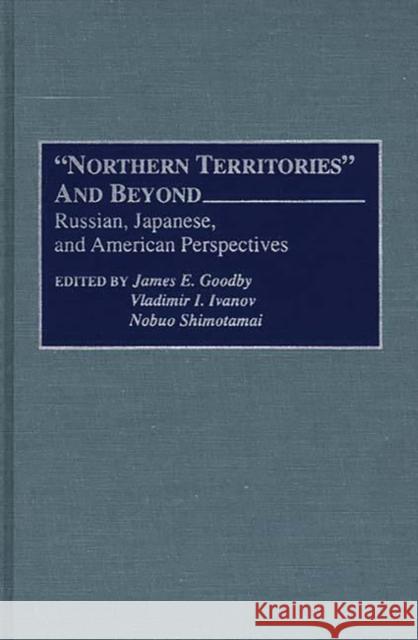Northern Territories and Beyond: Russian, Japanese, and American Perspectives » książka
Northern Territories and Beyond: Russian, Japanese, and American Perspectives
ISBN-13: 9780275950934 / Angielski / Twarda / 1995 / 408 str.
In this edited collection diplomats, academic researchers, and journalists survey modern Russian-Japanese relations. An attempt is made to go back to the origins of the conflict in their relations, to analyze their current status, and to propose an agenda for the future. The authors argue that the problems Moscow and Tokyo inherited from the decades of the Cold War cannot be resolved through a narrow bilateral approach and will require constructure U.S. participation. The problem of the Northern Territories is examined in the context of the North Pacific regional security environment. The authors explore the prospects for cooperative regional engagement, a nuclear build-down in the North Pacific, and possible involvement of the UN in the resolution of the territorial dispute.The dissolution of the Soviet Union raised hopes for a rapid improvement of Japanese-Russian relations. This is important to both global and regional stability, peace, and security in Northeast Asia, and to Russia's transition to new relations with the West. Both Russia and Japan are in the process of domestic change and have weak political leadership. Yeltsin's visit to Tokyo in October 1993 was a cause for relief and for hope as the two nations discussed their common concerns. However, the Northern Territories remains a serious obstacle to improved relations. In this book an attempt is made to go back to the origins of the conflict in Japan-Russia relations, to discuss their current status, and to propose an agenda for the future.There was a broad consensus among the diplomats, academic researchers, political analysts, and journalists whose writings are part of this collection. First, the problems Moscow and Tokyo inherited from the decades of Cold War cannot be resolved through a narrow bilateral approach and will require constructive U.S. participation. Second, the interconnection between bilateral, regional, and global trends created a new context for Moscow-Tokyo dialogue and cooperation. Third, the problem of the Northern Territories cannot be separated from the realities of the North Pacific regional security environment, which is still under the residual influence of the Cold War. The authors explore the prospects for cooperative regional engagement, a nuclear build-down in the North Pacific, and possible involvement of the UN in the resolution of the territorial dispute. Among the problems that require immediate attention, the writers focus on defense conversion, and dismantlement and disposing of nuclear weapons, and prospects for trilateral partnership that will serve the purpose of multilateral cooperation in the North Pacific/Northeast Asian region.











